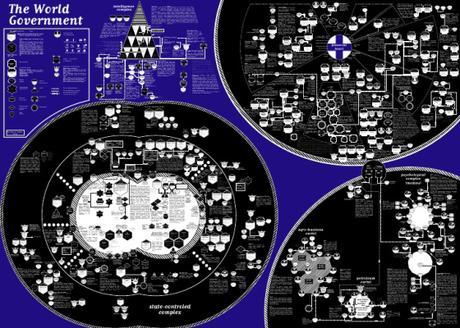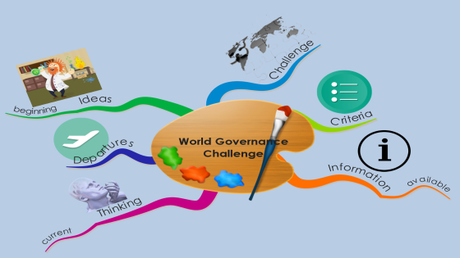
The Global Challenges Foundation, founded by the Swedish billionaire László Szombatfalvy, has launched an international competition in order to find a better system for world governance. The Global Challenges Prize 2017: A New Shape is calling on individuals, groups of individuals, universities, companies or associations from anywhere in the world to submit proposals outlining an alternative world governance model – either by revising the present UN system or by proposing completely new forms of governance. A total of US $5 million will be distributed amongst the shortlisted entries and The Foundation is committed to supporting the winning ideas towards.
As we are never impressed by the huge complexity of a thinking challenge – or at least pretend not to be, nor impressed by the very experts that have given it some thinking. So we will try – just for fun, for building up further Thinkibility skills while gathering some knowledge about the working of world governance mechanisms.
How to start?
We know one thing for sure (but we are of optimistic): We will never come up with better ideas than the experts and people who have already extensively thought about systems of world governance. So, we must be smart and have to rely on creative thinking techniques, instead of accepted scientific theories and critical thinking. We will take advantage of the curses of experience we earlier wrote about.
Preparing the thinking is a very important step. Therefore, we made a mindmap where we can collectively put all notes we have, in some categories.

- The Challenge. What is the focus of the thinking? To really understand what ideas are solicited for and avoiding coming up with brilliant ideas for the wrong problems.
- The Criteria. What are the criteria the solution must meet? Criteria narrow the thinking task and make it more specific.
- Available information. Here we put all we find about the current operating of world governing bodies, their problems, like Wikipedia entries, news articles, scientific reports, etc. We will be extra alert of what is “left out”. What is not mentioned, what is relevant information, but not available.
- Current thinking. As our first orientation of the problem progress, we get some notions of recurrent themes, sought solutions or ideas for improvement. We know that one of the easiest ways to get ideas is to escape from the current way of doing things. At this time we only notice them. At a later time, we will spell out what assumptions are underlying current thinking.
- Departing points. After some reading and playing around, mostly there will emerge some “entry points”. For example some defining characteristics of the situation that are inviting us for some provocative thinking.
- Beginning ideas. At the same time some hunches, associations and possible metaphors will enter the brain, and we make it a disciplined habit to write these down, how primitive and incoherent, even childish they might be formulated.
Now we have prepared our mindset and can we carefully design some 20 minutes Idea Boosts after we have broken down the subject in some well-defined Idea Sensitive Areas.
If you like to join us, send us a mail, and we give you access to our workspace.

